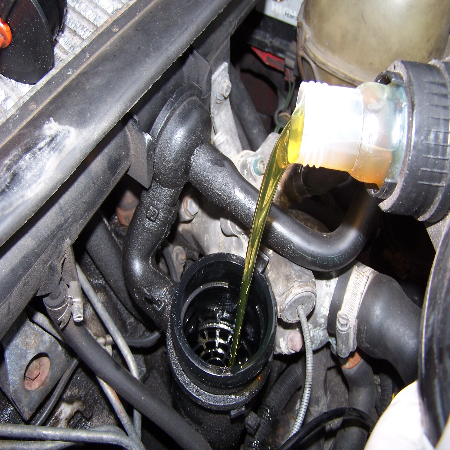It is clear that additives are essential to reduce the wear and tear of our car engine. Motor oils manufacturers already include necessary additives. However, it is not the end of the story. We should know that oil companies shouldn’t be allowed to make their own specifications. They must adhere to specific OEM or Original Equipment Manufacturers guidelines. The specifications of the motor oils are specified by ILSAC or the International Lubricant Standardization and Approval Committee. All major motor oil manufacturers should make sure that they have followed the guidelines. ILSAC provides a clear definition of the chemical and performance characteristics of the motor oils, before they can be used for cars. For manufacturers, this could actually be a rather complicated process. Repeated tests must be performed to make sure that new batches of oil produced by their manufacturing facility are able to deliver the needed level of quality. ILSAC will continuously obtain samples from the market and perform their own tests.
For manufacturers, there is a sequence of tests that need to be performed. If a new formula fails multiple times in a test, then it needs to be reformulated. ILSAC also determine how many additives that can be added into a motor oil product. The whole testing process can be quite expensive for the manufacturer. A new product could cost them in millions of dollars; not only for R&D, but also tests and further refinements. The automotive industry is far from being static. New specifications can be added and old ones can be changed. Oil manufacturers often advertise that they have the best type of motor oil. They need to do this, because it is important for them to quickly recover the significant amount of cost needed to develop and test motor oils. In this case, we should make sure that the motor oil provides ideal level of protection and lubrication of our car. Motor oil brands should already be used by thousands or even millions of cars for years. They must be proven to provide longevity for the inner working of the car.
Car engines could have extreme pressure inside the blocks. It means that that there should be adequate clearance and proper lubrication. Extreme heat could also cause multiple damages inside the car block. This could happen when the motor oil hasn’t been changed for a long time or the car owner uses improper grade or type of lubricants. As an example, specific motor oils may not be intended to handle excessive heat or pressure. For cars that are used for more significant purposes, owners may need to add specific aftermarket additives. There are different components of the engine that need to work under high pressure, such as rocker arms, valve stem tips, push rods, valve lifters and cams. On a really small contact area, they need to handle huge loads. For these components, the unit loading can be as high as 200,000 psi. They won’t be able to last for long without proper lubrication.
























